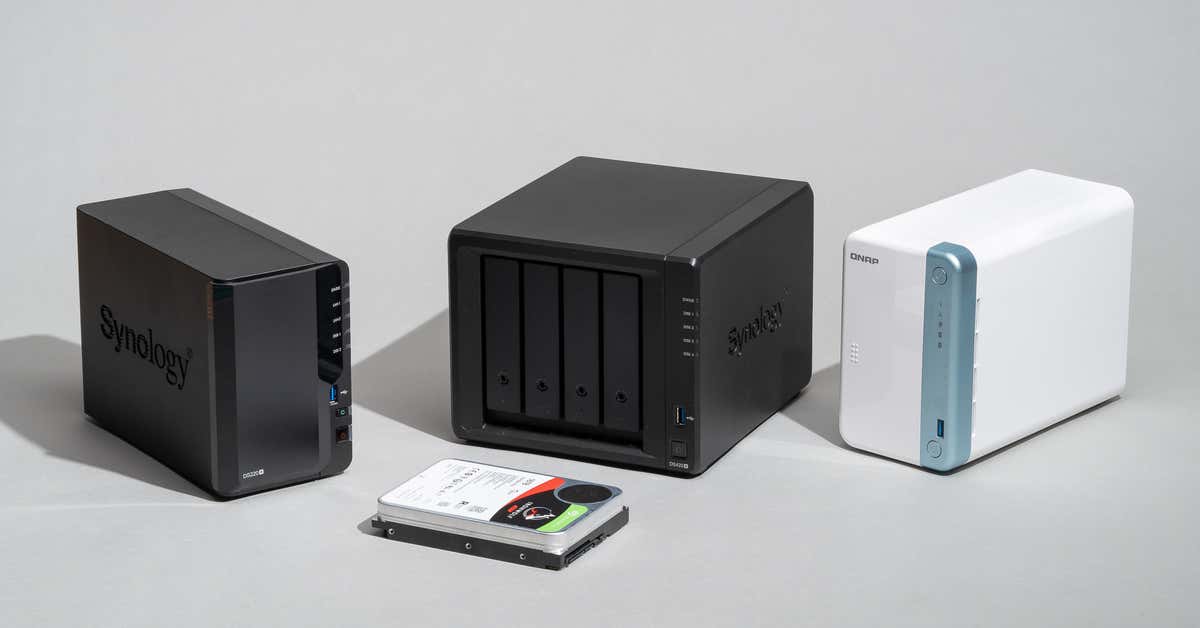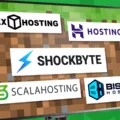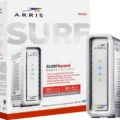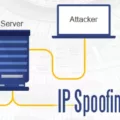Are you looking to build a reliable, secure, and powerful home network-attached storage (NAS) system? Well, you’ve come to the right place! In this blog post, we will provide you with our top picks for the best home NAS systems in 2021.
A NAS system is a great way to store all of your important data securely and reliably, so if you are considering investing in one then it is important to choose the right model for your needs. We have taken a closer look at the leading models on the market in 2021 and have come up with our top recommendations for both users who want an entry-level model as well as those who need something more powerful.
For basic users who don’t need too much power or features, the Synology DS220j is a perfect choice. This two-bay NAS is designed for those who just want to store their media files, back up their computers, or share documents over their network. It comes with an incredibly user-friendly interface and advanced features such as media streaming and data protection.
For those who need more power and features, we recommend looking into QNAP’s TS-230 or Asustor Drivestor 2 Pro AS3302T models. The TS-230 is a great alternative to Synology’s DS220j and offers more storage space as well as better performance tanks to its 2.5GbE LAN feature. Meanwhile, Asustor’s Drivestor 2 Pro AS3302T model offers even more power thanks to its dual-core Intel Celeron processor, 4GB of RAM, and four 3.5-inch drive bays for maximum capacity storage.
If budget is an issue then we recommend checking out TerraMaster’s F2-210 or QNAP’s TS-251B models which are both excellent value-for-money options that offer plenty of features including media streaming capabilities and support for virtualization technologies such as Docker containers.
Finally, if you need even more storage then Synology’s DS420j or TerraMaster’s F5-422 are great options that offer up to four hard drive bays each so you can easily expand your storage capacity without having to purchase a new device every time. They also come with powerful hardware specs including Intel Celeron processors, 4GB of RAM, and two Gigabit Ethernet ports for faster transfer speeds.
We hope this blog post has been helpful in narrowing down your search for the best home NAS systems in 2021!

The Best NAS Drive for Home Use
The best NAS drive for home use is the Synology DS220j. It offers a great balance of performance, features, and price. It’s equipped with a powerful dual-core processor, 1GB of DDR3L memory, and two drive bays that can accommodate up to 16TB of storage capacity. This NAS also offers an intuitive web interface and mobile app support. Additionally, it’s compatible with popular third-party services like Plex, Dropbox, and more. The Synology DS220j also comes with a two-year warranty for added peace of mind.
Which NAS Is Best For Home to Use With Docker?
The best NAS for home Docker is the Synology DS723+, DS923+, or DS1522+. These devices provide great performance, allowing you to run multiple Docker containers simultaneously. With a range of budget options, these NAS devices offer a good balance between affordability and quality. Furthermore, they come with advanced features such as hardware encryption and RAID support which are essential for your data security. The intuitive operating system makes it easy to set up and manage Docker containers on these NAS devices. Additionally, they provide easy access to the Synology Package Center, which includes many third-party applications that can be installed on the NAS device with ease. Finally, Synology is known for providing great customer support in case you have any issues or questions about using your new NAS device for running Docker containers.
Are NAS Drives Worth It for Home Use?
Yes, a NAS drive can be highly beneficial for home use. A NAS drive provides centralized storage for all of your files and data in one location and can be accessed from any device on the same network. It also allows you to share files with multiple users quickly and securely, as well as set up backup copies of important data. Additionally, a NAS drive is much more reliable than a single hard drive and will last longer than just a laptop or desktop computer. All in all, investing in a NAS drive is an excellent way to keep your data safe and secure while allowing you to access it from anywhere.
The Benefits of Installing an SSD in a NAS
Yes, it is definitely worth getting an SSD in NAS. An SSD offers a much faster data transfer speed than a traditional HDD, up to 30 times faster. An SSD also requires less energy to run and is silent, so there’s no noise pollution from your NAS. Additionally, an SSD has a much longer lifespan than an HDD, making it more reliable in the long run. Overall, investing in an SSD for your NAS can save you money and provide better performance over time.
Disadvantages of Network Attached Storage (NAS)
The primary disadvantage of a Network Attached Storage (NAS) system is its limited scalability. As the number of users increases, the amount of data being stored on the NAS can quickly overwhelm the network, resulting in slower performance and increased latency. This can be particularly problematic for applications that require high throughput, such as video editing, due to large file sizes. Additionally, if a single hard drive or RAID array fails on a NAS system, all data stored on it is lost. Finally, some organizations may lack sufficient IT resources to properly maintain and manage a NAS system.
Should I Keep My NAS On 24/7?
The short answer is yes—it is recommended to leave your NAS on all the time. This is because leaving it on ensures that your files are always up-to-date and available whenever you need them. It also allows your NAS to perform maintenance tasks, such as virus scans, in the background without disrupting your work. Additionally, if you are using your NAS for web hosting, having it remain on all the time ensures a reliable connection for visitors to your website.
Keep in mind that leaving your NAS on all the time does come with some drawbacks. For example, it will use more electricity than when it’s turned off, and you may notice increased noise from the fans keeping the server cool. You can minimize these drawbacks by setting up a power management or sleep mode schedule so that your NAS only stays awake when needed.
Ultimately, whether or not you should leave your NAS on all the time will depend on how you use it and how important up-to-date access to your files is for you. If reliable access and synchronization of files across devices are essential for you, then leaving it on all the time may be beneficial. However, if this isn’t necessary then turning off or putting into sleep mode at certain times can help reduce electricity costs while still allowing access to data when needed.
Conclusion
In conclusion, when it comes to selecting the best home NAS for your needs, there are a lot of considerations. You need to think about storage size, performance, features, and budget. Synology and QNAP offer some of the best NAS solutions in the market with reliable hardware and powerful software. The Synology DS723+, DS923+, and DS1522+ remain the best NAS devices for Docker for a range of budgets. If you are looking for a budget-friendly option with plenty of features, then the TerraMaster F2-210 is an ideal choice. For those who need more storage space, the QNAP HS-264 is a great option as it can stream media content without any lags or buffering. Ultimately, you should choose a NAS device that meets your neds and budget while also offering good performance and plenty of features.








